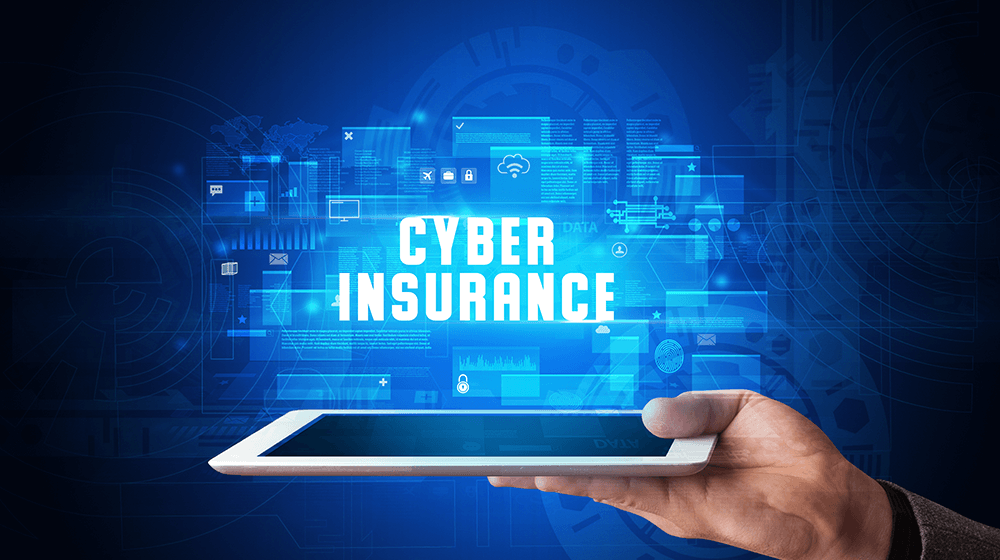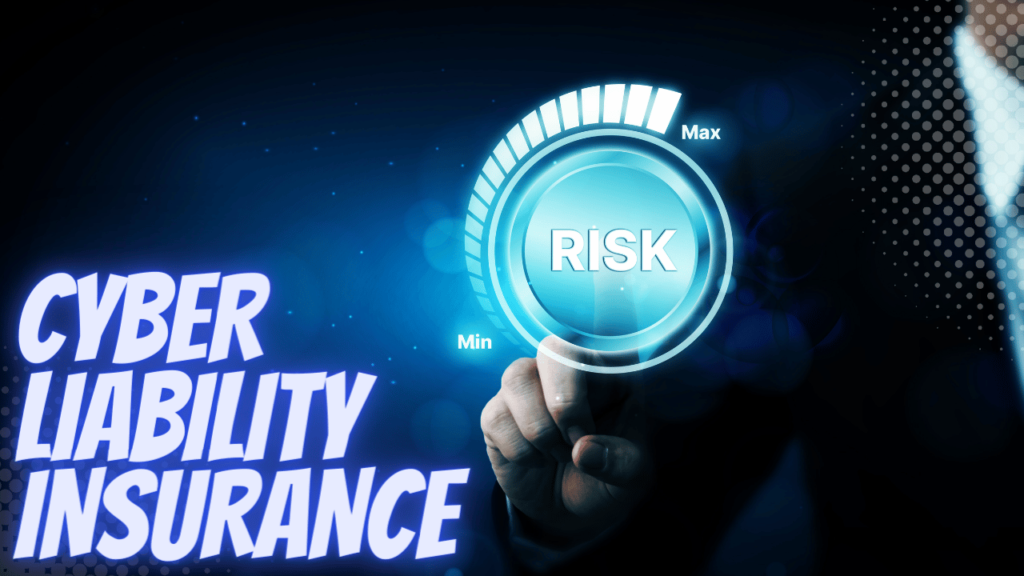In the digital age, businesses of all sizes face cyber risks, making cyber liability insurance essential to financial security. Cyber liability insurance covers losses incurred as a result of data breaches, cyberattacks, and other digital threats that have the potential to compromise private customer or business data.
Because standard business insurance policies may not adequately cover cyber-related incidents, specialized coverage is required. Cyber liability insurance typically includes coverage for response to a data breach, legal fees, costs associated with customer notification, regulatory fines, and identity theft recovery.
More extensive policies may also cover ransomware attacks, business interruption losses, and public relations efforts to manage reputational damage. Particularly vulnerable to cybercriminals. Cybersecurity should be a top priority for companies that handle sensitive data, such as retail, finance, and healthcare.
What Is Cyber Liability Insurance?

Cyber liability insurance is designed to cover financial losses and legal costs that arise due to data breaches, cyberattacks, or other online threats. Issues, such as data restoration, notification of affected individuals, regulatory fines, and even third-party lawsuits resulting from a data breach.
Why Every Business Needs Cyber Liability Coverage
The increasing frequency of cyberattacks makes cyber liability insurance essential for businesses of all sizes. Cyberattacks can lead to data breaches, ransomware infections, and theft of intellectual property, which can severely harm a business’s operations and finances. Small businesses, in particular, are often targeted due to their perceived vulnerability.
Responding to these attacks, including legal fees, notification costs, and potential lawsuits. With the price of cyber incidents continuing to rise, having this coverage can prevent a business from going under after an attack.
What Cyber Liability Insurance Covers
Cyber liability insurance typically covers two main areas: first-party and third-party costs. First-party coverage addresses the expenses that the business itself incurs, such as forensic investigation costs, data restoration, business interruption, and public relations expenses to repair damage to the business’s reputation.

Costs and settlements if your company is sued by clients, vendors, or other third parties who were impacted by a breach of your data or systems.
Types of Cyber Liability Policies Available
- First-party coverage focuses on the expenses your company will incur as a direct result of a cyber event, including loss of business income, data breach costs, and response expenses.
- Third-party coverage protects your business from liability arising from third parties. This can include legal expenses, settlements, and regulatory fines resulting from a data breach where customers or vendors are affected.
Key Benefits of Cyber Liability Insurance for Businesses
The benefits of having cyber liability insurance are numerous:
- Financial Protection: Coverage for expenses resulting from cyberattacks, including legal fees, fines, data recovery, and public relations costs.
- Regulatory Compliance: Many industries have strict data protection regulations. Cyber liability insurance can help businesses navigate the costs associated with compliance failures.
- Reputation Management: Cyber incidents can damage a company’s reputation. Having insurance can fund public relations efforts to repair brand trust.
- Risk Mitigation: Insurance providers often assist in identifying vulnerabilities and offering advice on how to improve cybersecurity practices, thus helping businesses reduce future risks.
What Businesses Are at Risk of Cyberattacks?

Every business, regardless of size or industry, is vulnerable to cyberattacks. However, specific sectors are at greater risk, including:
- Healthcare: Healthcare providers handle sensitive patient information, making them prime targets for cybercriminals.
- Retail and E-commerce: Companies that store customer payment details are at risk of data breaches and fraud.
- Financial Services: Banks and other financial institutions are frequent targets of cybercriminals aiming to access accounts or steal data.
- Technology and IT Companies: These companies often hold valuable intellectual property and sensitive business data, making them high-risk targets.
- Small Businesses: Small businesses often lack the robust cybersecurity infrastructure of larger companies, making them attractive targets for cybercriminals.
How Much Cyber Liability Insurance Do You Need?
The amount of cyber liability insurance a business industry, and the amount of sensitive data it handles. Small companies may be able to get by with a basic policy, while large corporations with sensitive customer data may need a more extensive policy.
In general, businesses should calculate their potential exposure based on the costs of a data breach, including the cost of hiring cybersecurity experts, legal fees, customer notifications, and the possible loss of business income.
Cybersecurity Practices to Complement Insurance
While cyber liability insurance provides valuable financial protection, businesses must also invest in robust cybersecurity practices to reduce their exposure to cyber risks. Some basic steps include:
- Regular Software Updates: Ensuring that all software, including security patches, is kept up to date.
- Employee Training: Employees are trained to recognize phishing attempts and practice good password hygiene.
- Data Encryption: Encrypting sensitive data both in transit and at rest to protect it from unauthorized access.
- Firewalls and Antivirus Protection: Implementing strong network security measures, such as firewalls and antivirus software, to defend against cyberattacks.
How to Choose the Right Cyber Liability Insurance Provider

Requires careful consideration. When evaluating potential insurers, consider the following factors:
- Experience: Opt for a provider with expertise in cyber insurance and a solid track record in the industry.
- Customization: Look for an insurer that offers policies tailored to your business’s specific needs, primarily if your company handles sensitive data or has a complex online presence.
- Support Services: Some insurers offer additional resources such as cybersecurity risk assessments, breach response teams, and public relations support.
- Financial Stability: Ensure the insurer has the financial capacity to cover the potential costs associated with a significant cyber incident.
Frequently Asked Questions
What is cyber liability insurance?
Cyber liability insurance protects businesses from financial losses related to data breaches, cyberattacks, ransomware, and other digital threats.
Why do businesses need cyber liability insurance?
A cyberattack can lead to financial losses, legal issues, reputational damage, and customer data breaches. Cyber liability insurance helps cover these risks.
What does cyber liability insurance cover?
It typically includes data breach response, legal fees, customer notification costs, identity theft protection, business interruption, and ransomware payments.
Does general business insurance cover cyber risks?
No, most standard business insurance policies do not cover cyber-related incidents, making cyber liability insurance essential for digital protection.
What types of businesses need cyber liability insurance?
Any business that collects, stores, or processes customer data—especially in industries like healthcare, finance, and retail—should have cyber coverage.
How much does cyber liability insurance cost?
Costs vary based on business size, industry, and coverage limits, but policies typically range from $500 to $5,000 per year.
Does cyber insurance cover ransomware attacks?
Yes, many policies include ransomware payment coverage, forensic investigation costs, and data recovery assistance.
Can cyber liability insurance help with reputation management?
Yes, some policies cover public relations and crisis management services to help businesses recover from reputational damage after an attack.
How can businesses reduce their cyber insurance costs?
Implementing strong cybersecurity measures, employee training, encryption, and multi-factor authentication can help lower premiums.
How do I choose the right cyber liability policy?
Compare insurers, assess coverage limits, check for exclusions, and consider add-ons like business interruption and social engineering fraud coverage.
Conclusion
With the rise in cyber threats, businesses must safeguard their financial and operational stability with cyber liability insurance. A standard business insurance policy may not cover data breaches, ransomware, or regulatory fines, making specialized cyber coverage essential. Cyber liability insurance helps businesses recover from hacking incidents, legal claims, data breaches, and financial losses due to cyberattacks.




